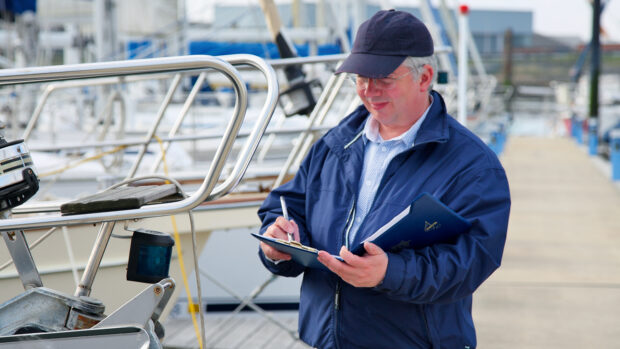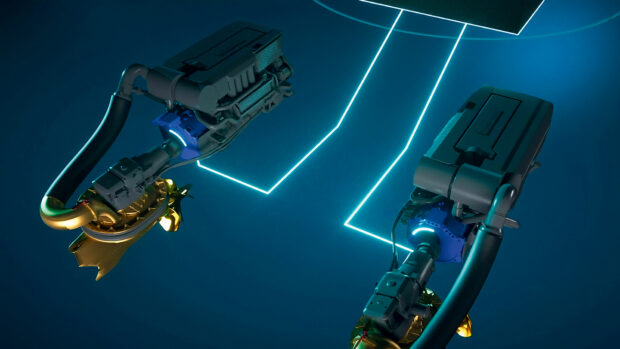A new kind of renewable diesel claims to offer all the performance of a fossil-fuelled boat without the carbon footprint. Is Gevo’s biofuel the holy grail we’ve all been searching for?
If you’ve ever wondered how big the challenge of moving to a low-carbon economy is going to be, consider this sobering statistic: in 2017 we burnt an astonishing 955 billion gallons of oil globally. The number alone is hard to visualise (955,000,000,000), let alone the fuel itself.
It’s simply not possible to replace that quantity of fuel with electric power alone in the short to medium term, however good we get at generating and storing it sustainably. The reality is that it’s going to take a combination of different actions and technologies to make a meaningful difference.
On the boating front we’re already seeing exciting innovations such as solar-powered motor cats, electric foilers and fast-displacement hulls doing their bit to cut fuel consumption, even if they usually come at the cost of reduced performance and/or range.

CEO Grüber holds the fuel of the future in his hands
But what if you could keep all the attributes of your existing fossil-fuelled boat, including its powerful combustion engines, and still not be adding any CO2 to the atmosphere? That is the vision which American start-up Gevo is trying to sell to everyone from airline operators to leisure boaters. It even held a series of press conferences at the Düsseldorf Boat Show to explain the technology behind it.
Whisky galore
The first thing to understand is that Gevo’s product is not a conventional biofuel such as the modified vegetable oil commonly added to road diesel or the distilled ethanol used as a petrol additive in some countries. Its core product is isobutanol, a four-carbon alcohol (present in Scotch whisky among other things), fermented from biomass, that forms a building block for the fuel we burn in our cars, boats and planes.
Through chemical processing, rather than distilling or refining, Gevo can then turn this isobutanol into renewable petrol, diesel and jet fuels with almost exactly the same chemical and physical properties as fossil derived fuels but without impurities such as sulphur and nitrogen. Not only does this mean that the biomass grown to produce the isobutanol has absorbed as much CO2 as the fuel releases when burnt but it creates almost no sooty particulates or nitrous oxides in the process.
Article continues below…

Sharrow MX-1: This toroidal boat propeller could be top of the props

Silent Yachts 55: Liveaboard test of this future-proof electric catamaran
£1730000
In effect, it means the dream of zero-carbon petrol and diesel is possible, even if realising it will require an enormous investment in the infrastructure and processes needed to achieve it – Gevo is well aware that without a sustainable model from farm to fuel station, its zero-carbon claim won’t stand up.
Although the renewable fuels have been extensively tested by a number of different bodies, including the National Marine Manufacturers Association (NMAA) and several major airlines, Gevo is still a long way from being able to produce it in the quantity needed to make an impact.
Its current prototype plant can only produce 100,000 gallons a year, a drop in the ocean next to the 955 billion gallons mentioned earlier. However, it has already secured contracts for 17 million gallons over the next few years, with another 70 million currently in negotiation.

Gevo’s current biofuel plant produces 100,000 gallons of isobutanol each year but much larger ones are planned
Speaking exclusively to Motor Boat & Yachting in May, CEO Patrick Grüber described it as a classic chicken and egg situation: “Building the plants takes time and money but we can’t build on speculation and investors won’t invest without proof of demand. We need to build demand globally and aggregate that to give them the confidence they need.”
That’s where we come in: he sees boat owners not just as consumers of sizeable quantities of fuel but as agents of change. If owners start asking fuel docks for renewable fuel, that will put pressure on distributors and suppliers to satisfy demand. In time, he envisages marinas and ports setting themselves up as carbon-neutral zones supplying renewable fuels to socially responsible boaters who want to reduce their carbon footprints.
To make that possible he knows that the fuel itself needs to be at least as good or better than fossil-based petrol/diesel, sold at a competitive price and demonstrably low or zero carbon when measured across the entire production cycle.

Isobutanol offers a purer, carbon-neutral fuel
Bug-free biodiesel
To this end, the NMMA, including Volvo Penta and Mercury among others, has already tested and approved petrol with a 16% isobutanol mix, finding no adverse affect on performance, cold starting or long-term wear. And because isobutanol doesn’t attract water, it is also less prone to diesel bug than regular biodiesel.
Recent falls in the price of crude oil make price comparisons harder to predict, but Grüber reckons a 25% premium is realistic in the short term with parity achievable once volumes increase and oil prices rise again. He’s equally confident that the zero-carbon goal is achievable using a blockchain (the distributed ledger technology that underlies cryptocurrencies such as Bitcoin) to keep track of the identification and monitoring of the raw material and processes.
At the moment Gevo uses animal-grade maize in its fermentation tanks, but any form of biomass with fermentable sugars such as beet, cane, straw and even wood pulp can be used. The only proviso is that it has to be sustainably grown and sourced. Once fermented, the spent mash is then used as animal feed and the processing plants themselves are powered by renewable energy such as biogas or wind turbines.
It may be some way off, but Gevo’s products and vision offer a tantalising glimpse of a future in which boaters can still enjoy large planing craft driven by efficient combustion engines burning fuel that is carbon (and guilt) free.
First published in the July 2020 edition of Motor Boat & Yachting.










